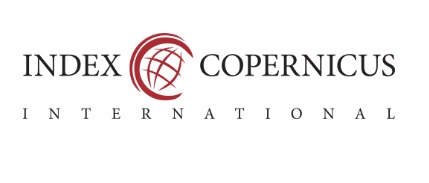The Impact of Educational Philosophy on The Development of Islamic Education Curriculum
Abstract
Aim: This research aims to rectify perspectives that overlook the significant contributions made by three important figures in educational philosophy to the advancement of the Islamic education curriculum. The objective of this research is to explain the implications of the ideas put out by three educational philosophy figures, namely John Locke, Henry Giroux, and John Dewey, in the development of the Islamic education curriculum. Each paradigm represents a distinct philosophical viewpoint: Humanism, Reconstructionism, and Progressivism.
Methodology: The research methodology employed is qualitative, specifically based on a literature review. The research model is to explain the perspectives of three major thinkers.
Findings: The findings of this study indicate that the three educational philosophy figures play distinct roles in the development of the Islamic education curriculum. John Locke advocated for the promotion of reason and ethical principles in the context of Islamic education. Henry Giroux enhances students’ capacity to critically examine material, comprehend social reality through an Islamic lens, and actively participate in meaningful discussions on significant matters. John Dewey enhanced the curriculum by prioritizing the cultivation of moral qualities and
the practical utilization of knowledge in real-life situations. This philosopher introduced educational principles that became influential in the advancement of Islamic education, namely focusing on fostering reasoning and moral development, promoting critical thinking, and advocating for participatory learning.
Implications/Novel Contribution: The implications of this study highlight the need for an Islamic education curriculum that integrates reasoning and ethical reflection, as advocated by John Locke. Henry Giroux’s ideas emphasize the importance of critical thinking and social awareness through an Islamic lens. John Dewey’s philosophy supports participatory and experiential learning to apply knowledge in real-life contexts. Together, these perspectives encourage a holistic, dynamic, and socially responsive Islamic education.
References
Ahmed, F. (2018). An exploration of Naquib al-Attas’ theory of Islamic education as ta’d¯ıb as an ‘indigenous’ educational philosophy. Educational Philosophy and Theory, 50(8), 786-794. doi:https://doi.org/10.1080/00131857.2016.1247685
Akrim, A., Setiawan, H. R., Selamat, S., & Ginting, N. (2022). Transformation of islamic education curriculum development policy in the national education system. Cypriot Journal of Educational Sciences, 17(7), 2538-2552. doi:https://doi.org/10.18844/cjes.v17i7.7685
Anstey, P. R. (2006). The philosophy of John Locke. Routledge.
Anstey, P. R. (2015). John locke and the philosophy of mind. Journal of the History of Philosophy, 53(2), 221-244. doi:https://doi.org/10.1353/hph.2015.0025
Arvisais, O., & Guidère, M. (2020). Education in conflict: How Islamic State established its curriculum. Journal of Curriculum Studies, 52(4), 498-515. doi:https://doi.org/10.1080/00220272.2020.1759694
Di Biase, G. (2015). Aristotle’s Physica in John Locke’s schemes of natural philosophy. Rivista di filosofia neoscolastica: 4, 2015, 22, 867-881.
Elkaleh, E. (2019). Leadership curricula in UAE business and education management programmes: A Habermasian analysis within an Islamic context. International Journal of Educational Management, 33(6), 1118-1147.
Giroux, H. (2018). Pedagogy and the politics of hope: Theory, culture, and schooling: A critical reader. Routledge.
Giroux, H. A. (2012). Ideology, agency and the process of schooling. In Social crisis and educational research (rle edu l). Routledge.
Hachem, A. H. (2019). John dewey and the “problem” of the mundane: Implications for philosophy of educational administration. In The handbook of dewey’s educational theory and practice. Brill.
Hodgson, N., Vlieghe, J., & Zamojski, P. (2018). Education and the Love for the World: Articulating a post-critical educational philosophy. Foro de Educación, 16(24), 7-20. doi:https://doi.org/10.14516/fde.576
Ichikawa, H. (2022). A theory of hope in critical pedagogy: An interpretation of Henry Giroux. Educational Philosophy and Theory, 54(4), 384-394. doi:https://doi.org/10.1080/00131857.2020.1840973
Jarrah, A. M., Khasawneh, O. M., & Wardat, Y. (2020). Implementing pragmatism and John Dewey’s educational philosophy in Emirati elementary schools: Case of mathematics and science teachers. International Journal of Education Economics and Development, 11(1), 58-75.
Leiter, Y. J. (2018). John locke’s political philosophy and the hebrew bible. Cambridge University Press. doi:https://doi.org/10.1017/9781108552370
Lutfauziah, A., Al Muhdhar, M. H. I., Rohman, F., et al. (2023). Curriculum development for environmental education at an islamic boarding school. Journal of Turkish Science Education, 20(3), 490-503. doi:https://doi.org/10.36681/tused.2023.028
Morley, C., & Ablett, P. (2020). Henry Giroux’s vision of critical pedagogy: Educating social work activists for a radical democracy. In The routledge handbook of critical pedagogies for social work. Routledge.
Muazza, M., Mukminin, A., Habibi, A., Hidayat, M., & Abidin, A. (2018). Education in Indonesian islamic boarding schools: Voices on curriculum and radicalism, teacher, and facilities. Islamic Quarterly, 62(4), 507-536.
Muhajir, A., Naim, N., Fitri, A. Z., & Safi’i, A. (2020). Approach to the development of multicultural education curriculum in darul hikmah modern Islamic boarding school Tulungagung, Indonesia. Universal Journal of Educational Research, 8(5), 1842-1847. doi:https://doi.org/10.13189/ujer.2020.080520
Muluk, S., Habiburrahim, H., Zulfikar, T., Orrell, J., & Mujiburrahman, M. (2019). Developing generic skills at an Islamic higher education institution curriculum in Aceh, Indonesia. Higher Education, Skills and Work-Based Learning, 9(3), 445-455. doi:https://doi.org/10.1108/HESWBL-06-2018-0064
Pollard, T. J. (2014). Hardened cultures and the war on youth: A conversation with Henry A. Giroux. Review of Education, Pedagogy, and Cultural Studies, 36(3), 180-192. doi:https://doi.org/10.1080/10714413.2014.917901
Reich, K., Garrison, J., & Neubert, S. (2019). Complexity and reductionism in educational philosophy—John Dewey’s critical approach in ‘democracy and education’reconsidered. In John dewey’s democracy and education in an era of globalization. Routledge. doi:https://doi.org/10.1080/00131857.2016.1150802
Yaqin, H., Hartati, Z., Salabi, A., Bahri, S., & Mizani, H. (2021). Influence of image-building, financial stability and curriculum development on education management with moderating effect of educational leadership: An Islamic perspective. Eurasian Journal of Educational Research, 94, 422-443.
Ye, Y.-H., & Shih, Y.-H. (2021). Development of John Dewey’s educational philosophy and its implications for children’s education. Policy Futures in Education, 19(8), 877-890. doi:https://doi.org/10.1177/1478210320987678

This work is licensed under a Creative Commons Attribution-NonCommercial 4.0 International License.












.png)










